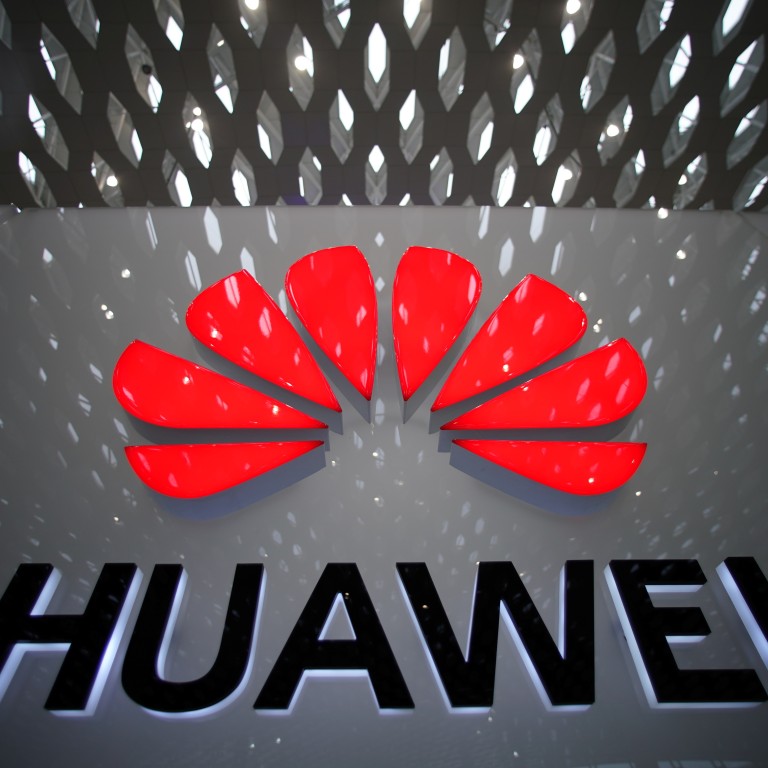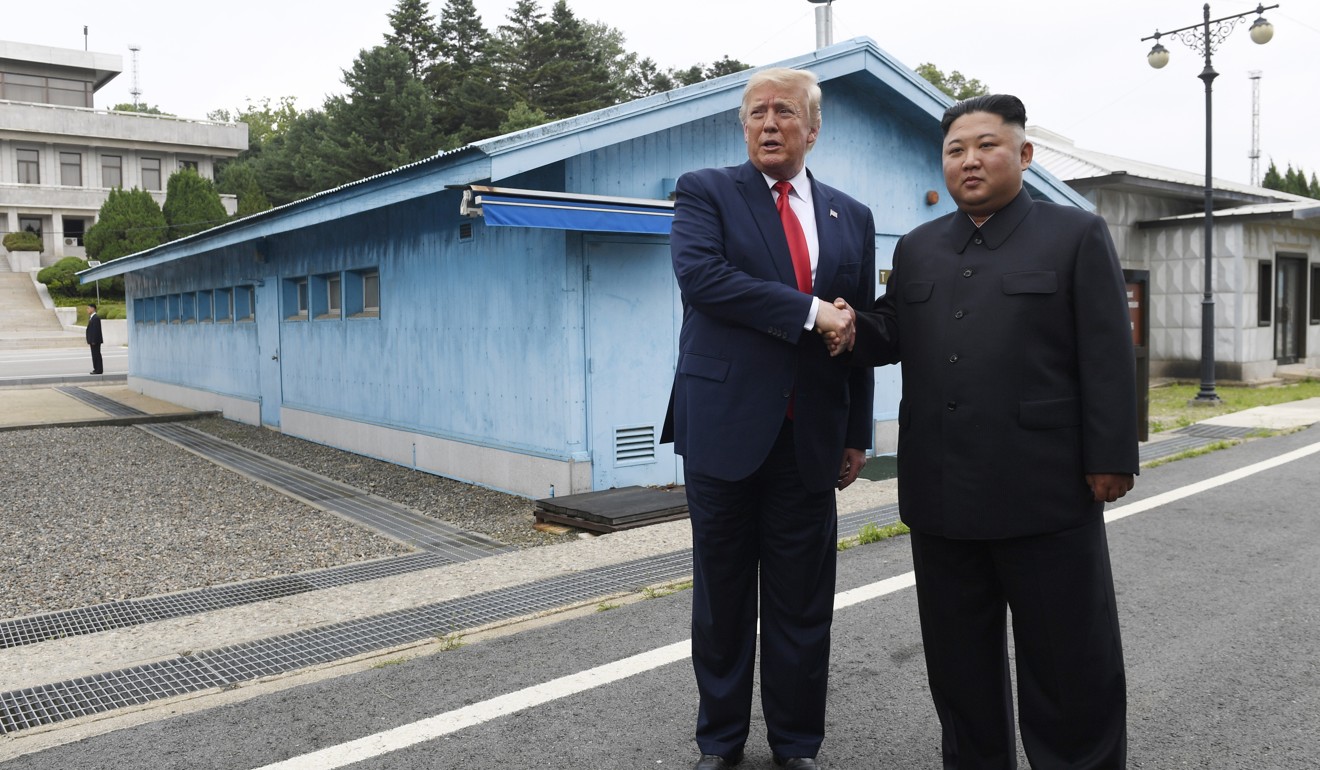
Huawei helped North Korea build wireless network and secretly collected Czech data, separate reports say as Western nations consider 5G ban
- Washington Post report on Pyongyang link raises questions about whether Chinese telecoms giant violated US export controls to furnish equipment to North Korea
- Two claims add uncertainty to company’s global footprint as it risks losing contracts to work on nations’ 5G roll-outs
Huawei Technologies is facing two fresh bombshell allegations involving potentially unlawful activities in North Korea and the Czech Republic, casting further doubt on the Chinese telecoms giant’s fate in the US and the European Union.
The two claims, made separately by US and Czech media organisations, added uncertainty to the future global footprint of the company, as Western nations consider banning Huawei, in full or in part, from their 5G wireless networks.
Western countries led by the US have accused the company of posing a national security threat, highlighting the irresistibility of a Chinese law that they said could force Huawei to hand over personal data it collected overseas to the Chinese state – a concern that forms the heart of the latest Czech claim. The accusation of a so-called “back door” has been rejected repeatedly by Huawei and the Chinese government.
On Monday, The Washington Post reported that, based on sources and documents it had obtained from a former Huawei employee, the company had “secretly helped” Pyongyang build and maintain North Korea’s commercial wireless network.
Huawei partnered with Panda International Information Technology, a Chinese state-owned firm, on a number of projects spanning at least eight years, according to The Post’s report.
The revelations raise questions about whether Huawei, which has used American technology in its components, violated US export controls to furnish equipment to North Korea, where the isolated regime has faced extensive international sanctions over its nuclear weapons programme and human rights abuses.
How can Huawei fix its battered image?
Also on Monday, Agence France-Presse reported, an investigation conducted by Czech public radio found that the Czech unit of Huawei “secretly collected personal data of customers, officials and business partners”.
Citing two former Huawei managers who spoke on condition of anonymity, the radio network said Huawei required them to enter the data into computer systems that “is only managed by Huawei headquarters in China”, according to AFP.
The personal information gathered included number of children, hobbies and the financial situation of designated subjects, it added.
In a statement, Huawei said the accusations made against the company in the AFP report are completely unsubstantiated.
“Huawei has never worked with any intelligence gathering operations whether from the Chinese embassy or any other organisation,” it said. “The way Huawei processes user data in the Czech Republic is in full compliance with all applicable Czech and EU laws.”
In response to the Washington Post report, Huawei said it has no business presence in the Democratic People's Republic of Korea.
“Huawei is fully committed to complying with all applicable laws and regulations in the countries and regions where we operate, including all export control and sanction laws and regulations of the UN, US and EU.”

Huawei, the world’s largest maker of telecoms equipment in terms of sales and one of the largest providers of 5G mobile technology, has become entangled in US President Donald Trump’s trade war with China.
Trump has held out the possibility of lifting some of the sanctions the US government has placed on the company, and Beijing has said they would need to be part of any negotiations.
In a May 15 executive order, Trump declared a national emergency that barred the use of telecommunications equipment made by companies deemed a threat to national security. The US Commerce Department followed the same day by putting Huawei on its “Entity List”, effectively stopping it from doing business with American companies.
What you need to know about US restrictions on Huawei
The Czech Republic and Poland have echoed the US’ hardline policies against Huawei, becoming the most vocal critics of the company within the EU.
The Czech National Cyber and Information Security Agency concluded last year that Huawei’s software and hardware posed a threat to state security.
In response to Czech radio network’s report, Huawei said in a statement that it was in compliance with the EU’s General Data Protection Regulation rules, which are designed to protect the privacy of EU citizens.
Replying to the North Korean claim, Huawei told The Washington Post that it “has no business presence” in North Korea.
“Huawei is fully committed to comply with all applicable laws and regulations in the countries and regions where we operate, including all export control and sanction laws and regulations” of the United Nations, United States and European Union, the statement says.
But The Post said several questions, such as whether Huawei had conducted business there in the past, either directly or indirectly, were not answered by Huawei’s spokesman Joe Kelly.
Could Huawei be using Trojan circuits to help Beijing spy on US?
The latest revelation prompted two US senators, Chris Van Hollen and Tom Cotton, to repeat their earlier warnings about Huawei.
They are among a bipartisan group of senators who introduced legislation last week seeking to reinforce an executive order to curb what they say is a growing national security threat by the company.
“At every turn, we learn more and more about what a malign actor Huawei is,” Van Hollen and Cotton said in a statement on Monday.
Concern over Huawei’s global reach and the suspected data security vulnerabilities faced by countries using their equipment has prompted calls in Washington for home-grown 5G system components that can compete with the Chinese company.
US senators seek to lock in limits on Huawei, keep it out of trade talks
Asked about the report in The Washington Post, Trump told reporters at the White House: “Well, we’ll have to find out. Our relationship with North Korea has been very good.”
Huawei’s US-based research arm, Futurewei Technologies, announced lay-offs on Monday, Reuters reported, citing two Futurewei employees it did not identify.

